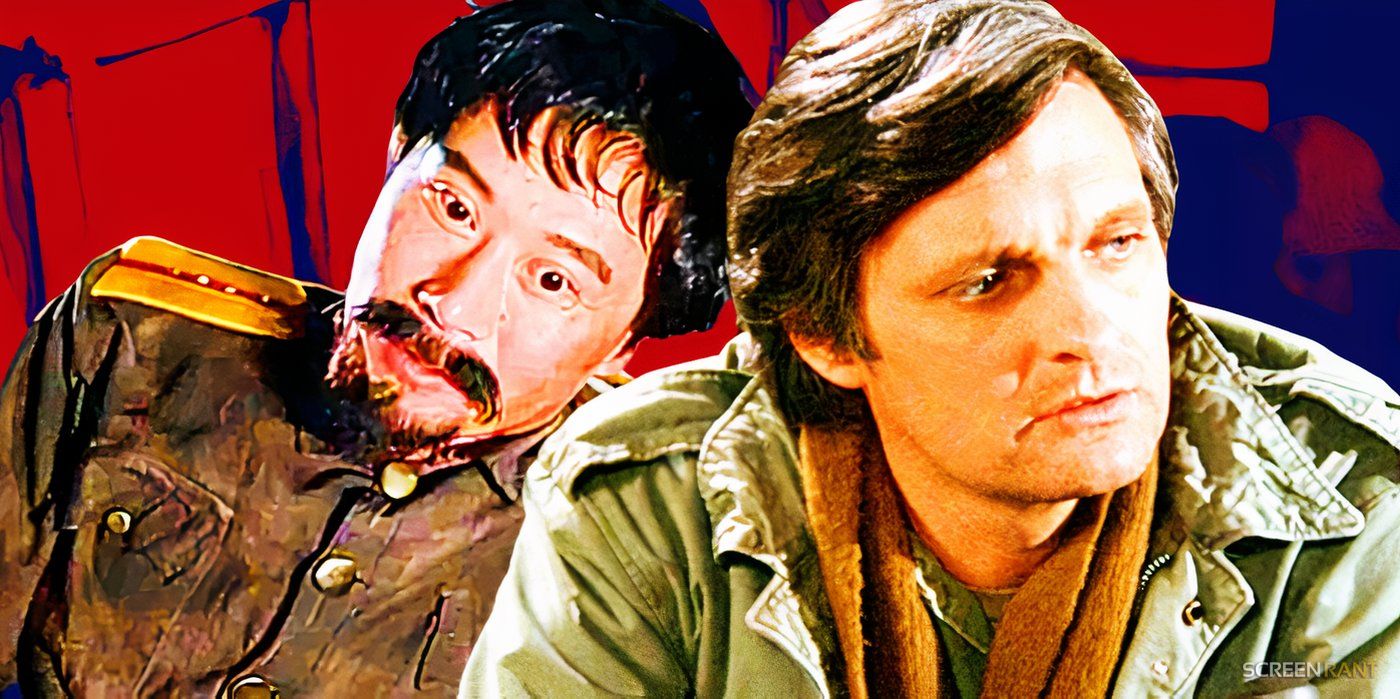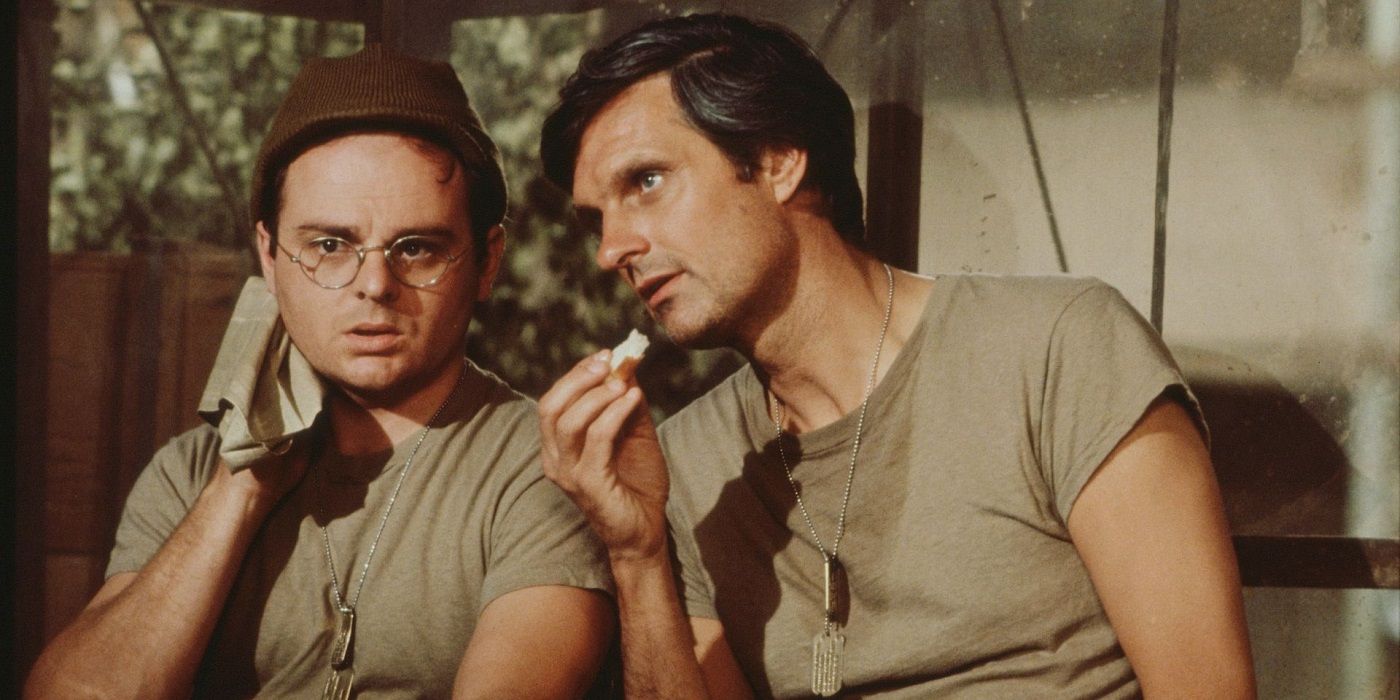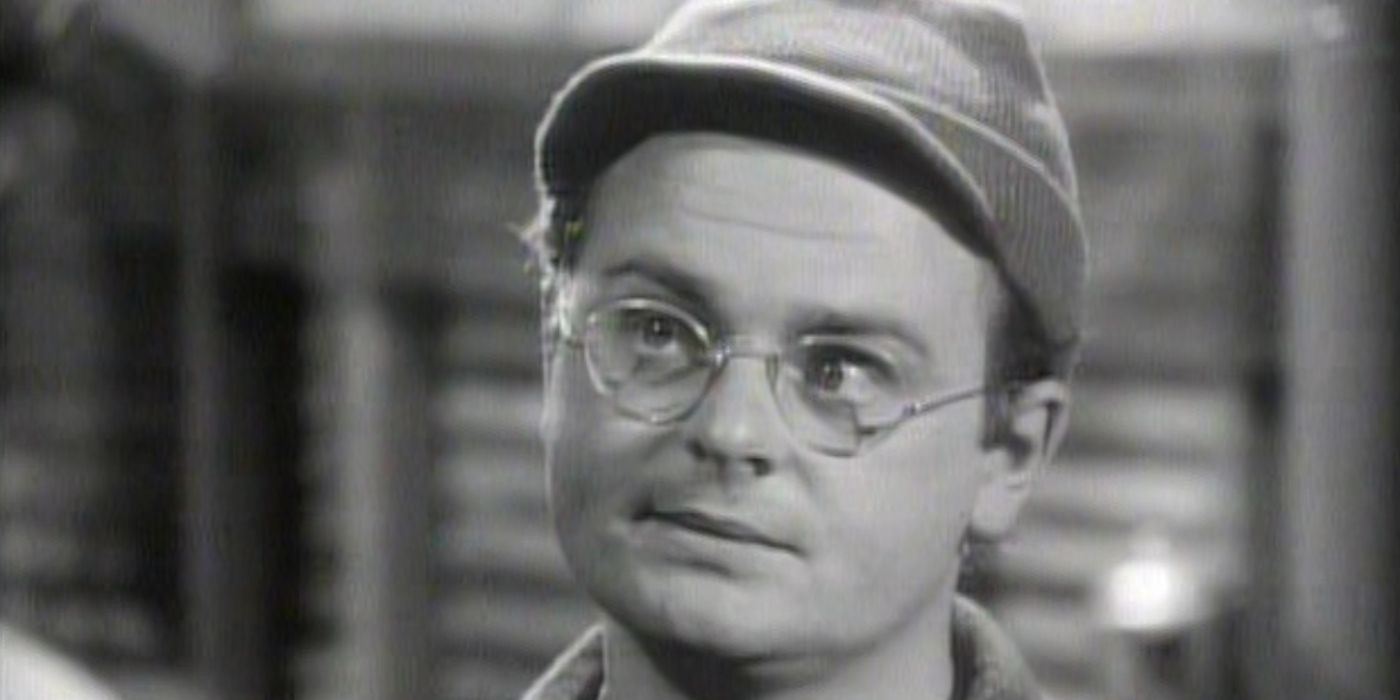Summary
-
MASH
almost had a terrible send-off for Radar due to Gary Burghoff’s insistence on a dramatic moment that didn’t work out. - Radar’s subdued farewell episode worked better for
MASH
, especially in light of its backdrop. - Radar not getting his party and seeing his friends work in the operating room made for a more powerful send-off.
MASH‘s send-off for Walter “Radar” O’Reilly was almost terrible because Gary Burghoff insisted on including one sequence. Early on its run, MASH experienced a cast exodus that could have killed the series. Losing fan-favorites such as Henry Blake and Trapper John McIntyre posed big challenges for the show on how to move forward. Somehow, MASH was able to come out of it even better, bringing in 4077’s new leader, Sherm Potter, and surgeon, BJ Hunnicutt. Despite expertly navigating this period, the series’ last big departure almost ended up being a disappointment had Burghoff gotten his way.
Like Blake, Trapper, and Frank Burns, Radar was also sent home from his stint in Korea. His departure, however, was due to a family tragedy back home. His Uncle Ed’s death left his mom on her own, which convinced Potter that it was time for the 4077th administrative specialist to go back to Iowa. In reality, Burghoff wanted to leave MASH to focus on his family. It was no secret that filming the series was grueling, and he needed some time off to attend to personal matters. Radar’s MASH exit was well done, but that wasn’t always the case.

Related
MASH’s Most Inaccurate Korean War Detail Makes It Difficult To Watch Now Because Of 1 TV Trend
MASH’s depiction of the Korean War has some issues, but its most inaccurate detail is almost impossible to get past now because of 1 key TV trend.
Radar’s Original MASH Farewell Episode Featured Gary Burghoff Having A Big Dramatic Moment
Burgoff Eventually Realized The Error Of His Ways
After it was decided that he would go home, the 4077 planned a fun send-off party for Radar in MASH season 8, episode 5, “Good-Bye Radar: Part 2.” Unfortunately, before they could even begin the festivities, choppers of wounded arrived, forcing the camp to suit up and prepare for surgery. At this point, Radar was supposed to have a big dramatic moment — something that Burghoff wanted to do. The actor revealed in M*A*S*H: The Comedy That Changed Television that, despite director Charles S. Dubin’s hesitation, he eventually relented, giving the departing cast member what he wanted.
Unfortunately, while Burghoff got his way, he immediately realized the error of his ways. He admitted that it didn’t play out the way that he imagined in his head, convincing him to submit to how Dubin wanted to shoot the scene. In the end, Radar’s moment in his final MASH episode didn’t involve anything dramatically big, but that didn’t mean that it lacked emotion. Read the actor’s whole story below:
“I said to myself, what a wonderful moment, I can cry my eyes out, and I can do this wonderful dramatic moment, I can just completely fall apart. And the director said, ‘If I were you, I would fight the tears.’ And I said, ‘No, no. Just let me do it, okay?'”
“The next day, in dailies, I look at the screen and it’s awful. I mean, it is just terrible. The director was right, I was wrong… I said, ‘Please can I do this again?’ And he said, ‘Yes, you may.'”
Why Radar’s Overly-Dramatic MASH Exit Didn’t Work
Radar’s More Subdued Exit Highlighted The War’s Seriousness
While Burghoff wanting to do a dramatic scene in his final MASH episode was understandable, it just wasn’t going to work. Firstly, it wouldn’t make sense for the character and his story. Radar, while naive at times, was usually good at holding back his emotions. Despite the clear sadness in him, he was still able to deliver the news of Henry Blake’s death in MASH season 3 without being overly emotional. Secondly, Radar was being sent home for personal reasons back in Iowa. He didn’t suffer any losses in Korea.
Radar not getting his party as his friends and colleagues worked tirelessly in the operating room was a far more powerful send-off for the character.
Ultimately, the more subdued final episode of Radar worked better for the show in general. While MASH never shied away from tackling emotional topics, the 4077 members were forced to work through all the atrocities from the war was a reminder of the harsh reality that they were all in. Radar not getting his party as his friends and colleagues worked tirelessly in the operating room was a far more powerful send-off for the character.
Why Radar’s Exit Was The Most Meaningful In MASH
Radar Played A Big Role In 4077
Radar was the final major cast departure in MASH. The historic series would only go on for a few more years after his exit. That didn’t mean, however, that losing him was easy. Arguably, Radar leaving MASH had the biggest impact on 4077, and that’s saying something, considering that the unit had to endure losing its first commanding officer in a terrible plane crash. The reason why Radar’s absence was so daunting was because of how much he meant to everyone at the camp. He kept everything in order as an administrative specialist.
Radar was a unique character because he was the most optimistic, if not naive, character in the series.
Just before his departure, MASH highlighted this when the 4077 was in shambles because no one else could figure out some of their day-to-day processes. Beyond his responsibilities in the camp, Burghoff character was also special in other ways. Radar was a unique character because he was the most optimistic, if not naive, character in the series. He kept the unit’s morale up during some of its most difficult moments. Being in MASH for that long allowed the series to properly develop the character that other departing players didn’t have.

M*A*S*H
Originally adapted from the 1970 film of the same name, M*A*S*H encompasses comedy, drama, and everything in between as it follows the lives of army doctors stationed in Uijeongbu, South Korea, during the Korean War.
- Cast
- Alan Alda , Wayne Rogers , Loretta Swit , Mike Farrell , Harry Morgan , Jamie Farr , David Ogden Stiers
- Release Date
- September 17, 1972
- Seasons
- 11
- Streaming Service(s)
- Hulu , Apple TV+

